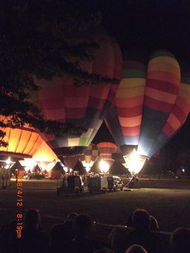Winter fishing, though often shunned due to its frigid temperatures, can be a rewarding and serene experience for those who are well-prepared. One of the key elements to successful winter fishing is mastering the art of bait adjustment. This article delves into the essential techniques for tuning your bait during the cold months, ensuring that you're ready to catch fish even when the weather is at its worst.
As the days grow shorter and the air turns crisp, many anglers retreat from the water, mistakenly believing that fish become dormant during the winter. However, seasoned winter anglers know that the season presents unique opportunities to hook into some of the most challenging and tasty fish. One of the critical skills you'll need to develop is the ability to adjust your bait effectively in the cold water. Here are some essential tips to help you master the art of winter bait adjustment.
Understanding Winter Water Conditions
Before diving into the specifics of bait adjustment, it's important to understand the conditions that winter water presents. Cold water holds less oxygen, and fish become more conservative in their movements. They tend to congregate in deeper, warmer waters, and their feeding activity is often more sporadic. Here's how to adjust your bait to these conditions:
Sinking Bait
During the winter, fish are less likely to actively chase after bait. Therefore, using a sinking bait can be more effective. The bait will gradually descend to the fish's level without the need for constant retrieval, which can be tiring in cold weather.
Weighted Leader
Attach a weighted leader to your line to ensure that your bait sinks quickly. This is especially important in cold water where fish may be suspended at different depths. The weighted leader allows you to adjust the bait's position more effectively.
Sensitivity
Cold water is more dense and offers less resistance, which means that fish may take a more subtle bite. Your bait should be sensitive enough to detect even the lightest taps from fish. A lighter rod and a finer line can help in this regard.

Choosing the Right Bait
The choice of bait in winter fishing can make a significant difference. Here are some bait options that work well in cold water:
Live Bait
Live bait, such as minnows or leeches, can be highly effective in winter. These baits tend to stay lively in cold water and are more likely to attract fish.
Artificial Lures
Artificial lures like jigs, spinners, and soft plastics can be excellent choices. They allow you to cover more water and can be fished at various depths and speeds.
Natural Food Sources
Natural food sources such as worms, insects, and crustaceans can also be effective. It's important to match the bait to what the fish are naturally feeding on in your specific fishing spot.
Bait Adjustment Techniques
Once you've chosen the right bait, here are some techniques to adjust it effectively:
Balancing the Bait
To ensure your bait is balanced, tie it on the line so that it sits level in the water. This is crucial for natural presentations that mimic real prey.
Weight Distribution
In cold water, fish may be more selective about the weight of the bait. Adjust the weight distribution so that the bait feels natural when it's submerged. Too much weight can spook fish, while too little may not attract them.
Retrieval Speed
In winter, slow and steady retrieves often work best. This mimics the slow movements of real prey in cold water. Avoid fast or erratic retrieves, as they can spook fish.
Sensory Stimulation
Winter fish are more attuned to sensory cues like vibration and sound. Use lures that create these stimuli to attract fish. A rattle in a spinner or a wobble in a jig can sometimes be the difference between a bite and a blank.
Conclusion
Mastering the art of winter bait adjustment is a skill that can make your winter fishing trips more productive and enjoyable. By understanding the conditions of winter water, choosing the right bait, and applying the proper adjustment techniques, you'll be well on your way to catching fish even when the rest of the world is hibernating. Remember that practice is key, and with each outing, you'll refine your technique and become a more adept winter angler. So, bundle up, hit the water, and enjoy the tranquility of winter fishing with the satisfaction of a well-tuned bait.












